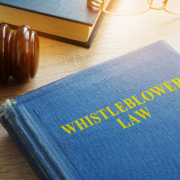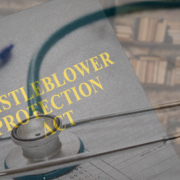What Proof Do You Need as a Whistleblower in Alabama?
Have you ever witnessed misconduct at work and wondered what it takes to blow the whistle in Alabama? As an employee, you might find yourself in a situation where you’ve uncovered fraud, safety violations, or other illegal activities that warrant reporting to the appropriate authorities. Before you step forward, it’s important to understand what proof you’ll need to support your claims and protect yourself from potential retaliation.
Types of Whistleblower Cases in Alabama
Whistleblower cases in Alabama can encompass a wide range of issues, each with its own specific evidence requirements. Some common types of cases include:
- False Claims Act Cases: These involve fraud against the government, such as Medicare fraud or defense contractor overbilling.
- Corporate Fraud: This category includes financial misrepresentation, insider trading, and other forms of business misconduct.
- Government Misconduct: Whistleblowers may report corruption, abuse of power, or misuse of public funds by state or local officials.
- Environmental Violations: Cases involving pollution, illegal dumping, or non-compliance with environmental regulations fall under this category.
- Healthcare Fraud: This includes overbilling, kickbacks, or providing unnecessary medical services.
- Workplace Safety Violations: Reporting dangerous working conditions or OSHA violations is another form of whistleblowing.
Each of these case types may require different forms of evidence, but all demand a high standard of proof to move forward.
General Evidence Requirements for Alabama Whistleblowers
When it comes to whistleblower claims in Alabama, not all evidence is created equal. Courts and investigative bodies look for certain qualities in the proof presented:
- Credibility and Reliability: Your evidence must be trustworthy and come from reputable sources.
- Relevance: The information you provide should directly relate to the alleged misconduct.
- Admissibility: Evidence must meet legal standards to be considered in court or administrative proceedings.
- Integrity: Maintaining the chain of custody and ensuring evidence hasn’t been tampered with is crucial.
Remember, the burden of proof in whistleblower cases can be substantial. It’s not enough to have a hunch or suspicion – you need concrete, verifiable information to support your claims.
Specific Types of Proof for Whistleblower Claims
Whistleblowers in Alabama can use various types of evidence to support their allegations. Here are some of the most common and effective forms of proof:
Documentary Evidence
This category often forms the backbone of whistleblower cases:
- Financial Records: Balance sheets, invoices, and audit reports can reveal fraudulent activities.
- Internal Memos and Reports: Company documents discussing or revealing misconduct are powerful evidence.
- Email Communications: Electronic correspondence can provide a paper trail of wrongdoing.
- Contracts and Agreements: These can expose illegal arrangements or conflicts of interest.
Physical Evidence
Tangible items can provide irrefutable proof of misconduct:
- Photographs: Visual documentation of safety violations or environmental hazards.
- Video Recordings: Footage of illegal activities or dangerous practices.
- Physical Samples: In environmental cases, actual specimens of pollutants or contaminants.
Testimonial Evidence
Human accounts can be compelling, especially when corroborated:
- Witness Statements: Testimony from colleagues or others with firsthand knowledge.
- Expert Testimony: Professional opinions on technical or specialized matters.
- Whistleblower’s Personal Account: Your own detailed narrative of events and observations.
Digital Evidence
In our tech-driven world, electronic proof is increasingly important:
- Electronic Records: Digital files, databases, or computer logs showing misconduct.
- Computer Forensics: Analysis of digital footprints left by fraudulent activities.
- Metadata Analysis: Hidden information in electronic files can reveal tampering or establish timelines.
Gathering and Preserving Evidence as an Alabama Whistleblower
Collecting evidence is a delicate process that requires careful consideration of legal and ethical boundaries:
Legal Considerations
- Privacy Laws: Ensure you’re not violating anyone’s privacy rights when gathering information.
- Confidentiality Agreements: Be aware of any non-disclosure agreements you’ve signed.
- Attorney-Client Privilege: Avoid accessing protected communications between the company and its lawyers.
Proper Documentation
Maintain detailed records of what you’ve collected, when, and how. This creates a clear timeline and establishes the authenticity of your evidence.
Chain of Custody
For physical evidence, document every transfer and storage location to prevent claims of tampering.
Secure Storage
Keep digital information in encrypted formats and physical evidence in secure, locked locations.
Working with an Attorney
An experienced whistleblower attorney can guide you through the evidence-gathering process, ensuring you stay within legal bounds while building a strong case.
Evaluating the Strength of Whistleblower Evidence
Not all evidence carries equal weight. Here’s how to assess the strength of your proof:
- Corroboration: Evidence supported by multiple sources is more compelling.
- Timeliness: Recent or contemporaneous documentation is often more credible than older records.
- Specificity: Detailed, precise information is more valuable than vague or general claims.
- Consistency: Your evidence should align with other known facts and not contradict itself.
- Potential Challenges: Consider possible weaknesses in your evidence and how they might be addressed.
Alabama-Specific Considerations for Whistleblower Proof
Alabama has its own nuances when it comes to whistleblower evidence:
- State Employee Protection Act: This law outlines specific requirements for state employees reporting wrongdoing.
- Alabama False Claims Act: Understanding the evidence standards for qui tam lawsuits is crucial.
- Alabama Ethics Commission: This body plays a role in evaluating evidence in certain whistleblower cases.
- State vs. Federal Requirements: Be aware of how Alabama’s evidence standards might differ from federal ones.
- Statute of Limitations: Timing is critical – know the deadlines for presenting your evidence.
Protecting Yourself While Gathering Evidence
Whistleblowing can be risky. Here’s how to protect yourself:
- Understand Anti-Retaliation Laws: Alabama has provisions to protect whistleblowers from workplace retaliation.
- Maintain Confidentiality: Be discreet about your activities to avoid tipping off wrongdoers.
- Document Everything: Keep a record of any threats or adverse actions you experience.
- Know Your Rights: Familiarize yourself with whistleblower protections under Alabama law.
Coumanis & York P.C.: Your Trusted Alabama Whistleblower Attorneys
Whistleblowing in Alabama requires solid, well-documented evidence to strengthen your claims and increase your chances of being taken seriously. The quality and quantity of your evidence can make a significant difference in a whistleblower case, whether you’re reporting corporate fraud, government misconduct, or environmental violations.
At Coumanis & York P.C., we have extensive experience handling whistleblower cases in Alabama. Our team understands the intricacies of state and federal whistleblower laws and can guide you through the process of building a strong case. If you’re considering blowing the whistle on misconduct within your organization, contact us for a confidential consultation and case assessment.








Leave a Reply
Want to join the discussion?Feel free to contribute!